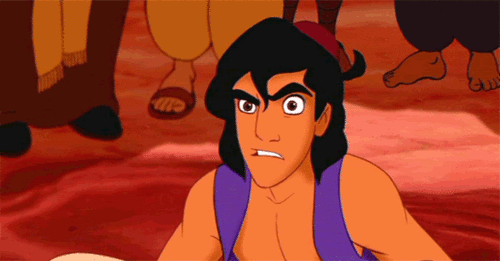Are We Seriously Supposed to Believe There Are No Brown Men Talented Enough for Guy Ritchie’s Aladdin?


The Hollywood Reporter recently published a piece about the casting search for Disney’s live-action Aladdin, which has taken longer than initially expected. Production was expected to begin in July, but it’s been pushed back to August in order to accommodate the search for a male lead. (The search for Jasmine has reportedly narrowed to Power Rangers star Naomi Scott and Indian actress Tara Sutaria.)
In the grand scheme of Hollywood schedules, a lost month isn’t exactly big news. It happens when you’re undertaking a massive, worldwide casting call. However, The Hollywood Reporter suggested a different explanation for the delay. “Finding a male lead in his 20s who can act and sing has proven difficult,” reads the article, “especially since the studio wants someone of Middle-Eastern or Indian descent (the animated film is set in the fictional Middle Eastern city of Agrabah)….[T]he search has dragged on, with Disney and Ritchie having to go back to the drawing board multiple times.”
“Especially since the studio wants someone of Middle-Eastern or Indian descent”?
Seriously? Seriously?
I’m not saying that these searches aren’t difficult. Ritchie’s also expanded the process to look at unknowns across the world, and that’s commendable. It also undoubtedly complicates the process. There’s nothing wrong with The Hollywood Reporter writing up these delays.
But to suggest that it’s taking so long because the talent pool is limited to Middle-Eastern and Indian actors is racist as hell. And it’s radically different from the way the press writes up searches that primarily involve white actors. When Harry Potter went looking exclusively for British children, they also auditioned thousands of hopefuls. But that search was described as an exciting, encouraging “casting frenzy.”
The Harry Potter team watched 40,000 Harry auditions before landing on Daniel Radcliffe. Ritchie and his crew have sat through 2,000 auditions for Aladdin and Jasmine combined, and I’m supposed to see that as an “especially” difficult search for talent?
Get out. This search can only be considered “especially” difficult by someone who sees the casting restriction to Middle-Eastern and Indian actors as unnecessary and burdensome. And, again, we don’t see that sort of suggestion with majority-white casting searches. Going so far as to find a Harry who was British and had natural green or blue eyes was worthy of a wide, exhaustive search. But having to cast a Middle Eastern actor in Aladdin, on the other hand, is a PC burden. The undercurrent of this article is: If only we could whitewash, this would be so easy!
And that idea plays into some of the more insidious, unspoken ways that racism manifests in the entertainment industry. Reviewers who “just don’t connect” with characters of color. Directors who just don’t “see that special something” in actors of color. The idea that black women are “not ready” for Saturday Night Live or that finding trans kids to play trans kids is “incredibly hard.” It’s also the sort of bias that Mitt Romney was ruthlessly mocked for during his presidential run, when he said he had to look through “binders full of women” to try and find any women who were qualified. It’s no less ridiculous when someone uses this idea to prop up their racism rather than their sexism.
Bollywood exists. Riz Ahmed exists.* Aladdin the Broadway musical exists and is currently playing in cities around the world. The suggestion that there’s some dearth of Middle Eastern and Indian actors who can handle a movie musical is laughable.
When people point to Hollywood’s racism, they’re not just talking about whitewashing and stereotyped roles. They’re also talking about write-ups like this article, and the industry sources who feed them these racist interpretations of events.
* Alas, yes, the studio did look at Ahmed, but they’re more likely to cast a newcomer. I’ll recover eventually.
(Via The Hollywood Reporter; image via Walt Disney Studios)
Want more stories like this? Become a subscriber and support the site!
—The Mary Sue has a strict comment policy that forbids, but is not limited to, personal insults toward anyone, hate speech, and trolling.—
Have a tip we should know? [email protected]